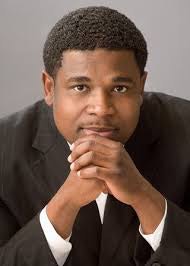 Matthew Lynch
Matthew LynchAt least on paper, America’s colleges and universities are interested in creating a diverse student population. Though not perfect in practice, U.S. college campuses are increasingly becoming more nuanced in their population makeups in order to more accurately represent the greater population. Part of this is just a reflection of a changing society, but some of it has to do with schools effectively recruiting a student body that has plenty of diversity. This includes recruitment efforts to bring in low-income, first-generation, immigrant and other minority students.
While nearly every college or university has a diversity policy on the books, some are having more success than others. Take a look at these five colleges or universities that are doing an excellent job with multicultural recruiting and how they are making it happen:
Bates College: With its Prologue program for first-generation and diverse students, this Maine-based school welcomes these students with a three-day intensive initiation. For new students who want to enter in the fall of 2016, the Prologue program will offer tours, class attendance, meet-and-greet sessions with faculty members, and even an admission interview. The purpose is to give these students a more accurate idea of what to expect when they arrive as official students. Literally putting students in classroom seats helps them envision their futures as college students.
Princeton University: Though Ivy League schools are generally regarded as being elitist, many are making great strides to create more diverse campuses. Princeton has specific recruiting tactics that include partnering with the Leadership Enterprise for a Diverse America to reach talented high school students from disadvantaged socioeconomic backgrounds. A seven-week summer program is also available for incoming freshman from low-income and other disadvantaged backgrounds in order to help them adjust to the rigors of Princeton before their official time on the campus begins. A release from the university states that the “Class of 2018 has a record 290 students from low-income backgrounds, making up 22 percent of the class; approximately 12 percent of the Class of 2018 are first-generation college students.” These numbers are certainly a reflection of successful recruiting, but to get those students across the graduation stage, Princeton recognizes that support programs are necessary too.
University of North Carolina at Charlotte. This public does a great job addressing the needs of students who come from disadvantaged backgrounds. The graduation gap between White and Latino or Black students at UNC-Charlotte is nearly non-existent. In addition, generous need-based scholarships ensure that these disadvantaged students graduate with less debt. UNC-Charlotte also offers a six-week summer “bridge” program that has increased its freshman-to-sophomore retention by 12 percent.
Rutgers University: Though not as traditionally diverse as some of the other schools on this list, Rutgers does have multicultural strengths in two areas: international students and LGBT students. Students from more than 110 countries attend Rutgers, and it is consistently ranked as a top 100 campus for LGBT students. Women represent almost half of the students (49 percent) and just more than one-quarter are of Asian descent. Where Rutgers lacks is African-American representation (just 7 percent), but overall the university is doing a good job of recruiting diverse students.
When it comes to economic diversity, the Rutgers Future Scholars program is offered to first-generation and low-income middle schoolers who live in the vicinity of the university and show promise for attending it in the future. The students who complete the precollege initiative are given a scholarship to cover tuition for four years. More support for lower-income students comes from an additional Educational Opportunity Fund.
Cornell University: More specifically, the College of Engineering. The department is designed to assist students who are “traditionally underrepresented in engineering.” In 2011, President Obama bestowed the Presidential Award for Excellence in Science, Mathematics and Engineering Mentoring on Cornell for its successful attempts at diversity. Mentoring is a big part of what makes this program so successful. Since 2004, this niche initiative of the larger university has connected minority high school students with mentors who are already in the college program, faculty or working in the field of engineering. The program works because it shows younger engineers-to-be other successful people who look like them.
Dr. Matthew Lynch is dean of the School of Education, Psychology, and Interdisciplinary Studies, and an associate professor of education at Virginia Union University.





















